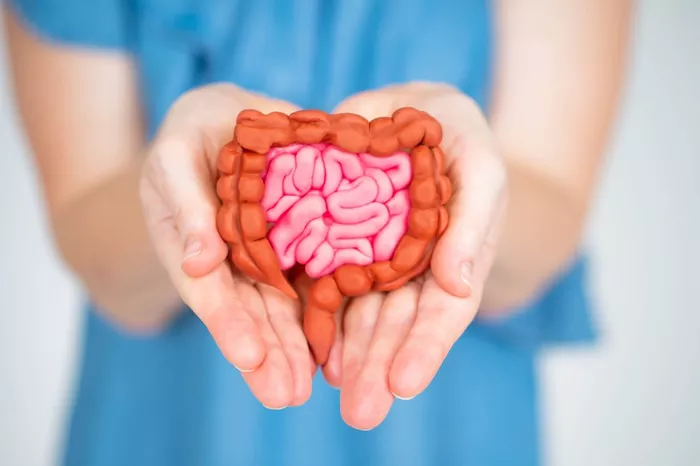Tryptophan, a vital amino acid found in the human diet, undergoes breakdown by gut microorganisms, leading to the production of several metabolites that influence human health. A study recently published in Nature Microbiology investigates how increased dietary fiber intake affects tryptophan metabolism, revealing significant implications for gut health and disease prevention.
The study, titled “Dietary Fibre Directs Microbial Tryptophan Metabolism via Metabolic Interactions in the Gut Microbiota,” highlights how tryptophan is metabolized into compounds such as indole, indole lactic acid (ILA), and indole propionic acid (IPA). The health implications of these metabolites are distinct.
High indole levels are linked to chronic kidney disease and an increased risk of persistent Clostridioides difficile infections. Conversely, ILA offers protective effects against dietary allergies, and IPA is inversely related to type 2 diabetes, benefits gut mucosal integrity, and reduces the risk of atherosclerosis.
Other tryptophan metabolites play crucial roles in maintaining epithelial barriers, regulating inflammation, supporting immunologic functions, and offering protection against infectious diseases. However, indole, the most prevalent tryptophan metabolite, becomes problematic when metabolized by the liver into toxins that exacerbate chronic kidney disease.
Several studies have underscored dietary fiber’s benefits in reducing toxic byproducts from protein breakdown by colon microbes. Dietary fiber increases food transit through the gut, boosting the availability of carbohydrates in the colon and preventing protein catabolism. The current experimental study explores the effect of fermentable carbohydrates on tryptophan metabolism in the gut. The researchers conducted in vitro and in vivo experiments using mouse models to evaluate how gut microbes compete for tryptophan and the resultant metabolic end-products.
The bacterial strains studied included Clostridium sporogenes, Peptostreptococcus anaerobius, Bacteroides thetaiotaomicron, and Escherichia coli. These strains were examined in an artificial in vitro environment and compared with complex microbial communities from human feces samples. In both in vivo and in vitro experiments, E. coli and C. sporogenes competed for tryptophan. E. coli produced indole, while C. sporogenes produced ILA and IPA.
Carbohydrate supplementation inhibited E. coli tryptophanase activity, reducing indole production. C. sporogenes preferred amino acids and did not utilize carbohydrates, even at high concentrations. Pectin, a complex carbohydrate, led to B. thetaiotaomicron breaking it down into simple sugars, which fed E. coli. This process upregulated E. coli genes for utilizing fiber degradation products, reducing indole levels without changing E. coli abundance. Increased pectin consumption reduced the abundance of C. sporogenes, but elevated ILA and IPA levels due to more available tryptophan for C. sporogenes.
Human fecal cultures exhibited similar results, with reduced indole levels following increased dietary fiber intake. When fecal microbiota was transplanted into gnotobiotic mice, similar outcomes were observed, confirming that dietary fiber suppresses indole production by multiple gut species. The study demonstrates that the availability of microbial substrates and fermentable carbohydrates significantly influences tryptophan metabolism in the gut.
Increased dietary fiber shifts gut microbial metabolism towards producing metabolites that support gut mucosal integrity, immunity, and overall metabolic health. This finding has profound implications for dietary recommendations aimed at improving gut health and preventing metabolic disorders. Enhanced consumption of fermentable fibers could thus promote beneficial tryptophan metabolites, fostering a healthier gut environment and reducing disease risks.
The study findings explain why the consumption of fermentable fibers suppresses indole production but promotes the generation of other tryptophan metabolites associated with health benefits. The availability of microbial substrates and fermentable carbohydrates in the gut affects the direction of tryptophan metabolism.
As a result, the relative abundances of tryptophan metabolites are altered through their effects on specific bacterial species. This shift in gut microbial metabolism increases the production of metabolites that support the integrity of the gut mucosa, immunity, and metabolic health, offering a clear path for dietary interventions aimed at enhancing gut health and reducing the risks of metabolic disorders.
Related topics:
- Air Travel Health Risks and Precautions: Insights from an Infectious Disease Expert
- Fraser Health Introduces Revolutionary Stroke Medication
- WHO Enhances Health Care Access in Underserved Afghan Provinces


